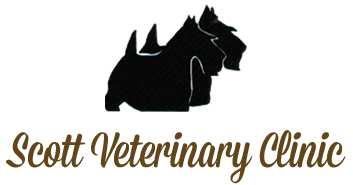Library
-
A RAST test, or radioallergosorbent test, is a blood test that can be used to determine which allergens are causing a pet's allergies. This test is often performed as part of the workup for atopic dermatitis in cats. The results of allergy testing are typically used to develop a hyposensitization plan for your cat, which helps desensitize your cat to allergens. Many cats treated with hyposensitization, formulated on the basis of RAST results, experience a significant reduction in the signs of allergic dermatitis.
-
A RAST test, or radioallergosorbent test, is a blood test that can be used to determine which allergens are causing a pet's allergies. This test is often performed as part of the workup for atopic dermatitis in dogs. The results of allergy testing are typically used to develop a hyposensitization plan for your dog, which helps desensitize your dog to allergens. Many dogs treated with hyposensitization, formulated on the basis of RAST results, experience a significant reduction in the signs of allergic dermatitis.
-
A recessed vulva, also referred to as a juvenile or hypoplastic vulva, is a conformational issue that occurs in female dogs. In this condition, the vulva is recessed within, or partially hidden by, surrounding folds of skin. Some dogs might have a recessed vulva for their entire life without ever experiencing any visible effects. In other dogs, however, a recessed vulva can predispose them to vaginitis and/or urinary tract infections. Depending on the severity of your dog’s clinical signs, medical or surgical options may be used to treat this condition.
-
Adding a new kitten to your family is a lot of fun, but it is also a big responsibility. Your kitten will need to see your veterinarian for vaccinations, deworming, and flea control. Proper nutrition is essential for growth, so choosing the right food is important. Spaying or neutering offers health advantages. All kittens should be microchipped to provide identification in case she escapes.
-
Congratulations on the addition of a new puppy to your family! This handout provides general care advice for your puppy, including nutrition, play and chewing behavior, housetraining, socialization, nail trimming, and basic first aid.
-
Owning a puppy can be an extremely rewarding experience but it is also a large responsibility that lasts the entire lifetime of the dog. Working with your veterinarian, there are several preventive measures to help keep your puppy safe and healthy as he grows up, including vaccination, parasite treatment and prevention, identification, and spaying or neutering your dog.
-
Reproductive disease in ferrets is rare today, as most pet ferrets are spayed or neutered at a young age. One disease that is still occasionally seen in pet ferrets occurs in females that are not spayed. This is called hyperestrogenemia and is a result of persistently high blood levels of estrogen in unspayed females that are not bred or fails to ovulate.
-
Swellings on or around the joints in reptiles can be an indication of uric acid deposits in the area. This condition is referred to as gout. Gout is often painful and may also affect internal organs. Treatment will require medications and sometimes surgery.
-
Cryptorchidism (retained testicles) is a fairly uncommon disease that can be passed on to future litters. Clinical signs are uncommon unless complications develop. Testicular cancer and spermatic cord torsion are two complications that can occur with cryptorchidism. Neutering easily corrects the problem.
-
Reverse sneezing is the act of forceful convulsant inhalation. It is generally harmless and self-limiting. It is caused by an irritant in the nose, sinuses, or pharynx. Diagnosis is aimed at finding the source of the irritation and ruling out potential triggers. Most cases require no treatment; however, some affected dogs will require anti-inflammatories, antihistamines, or decongestants.

